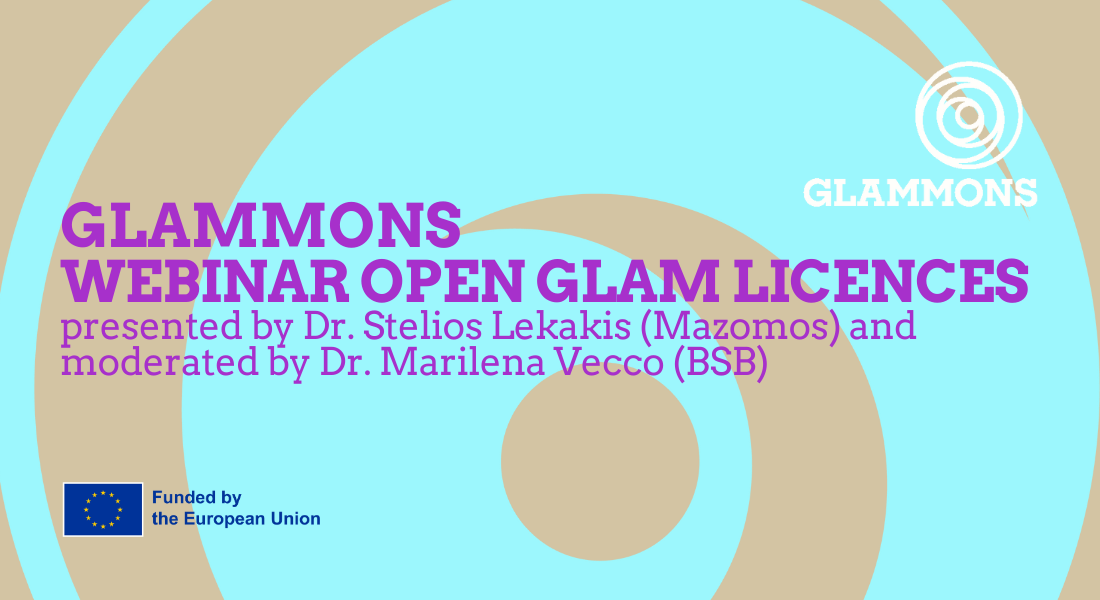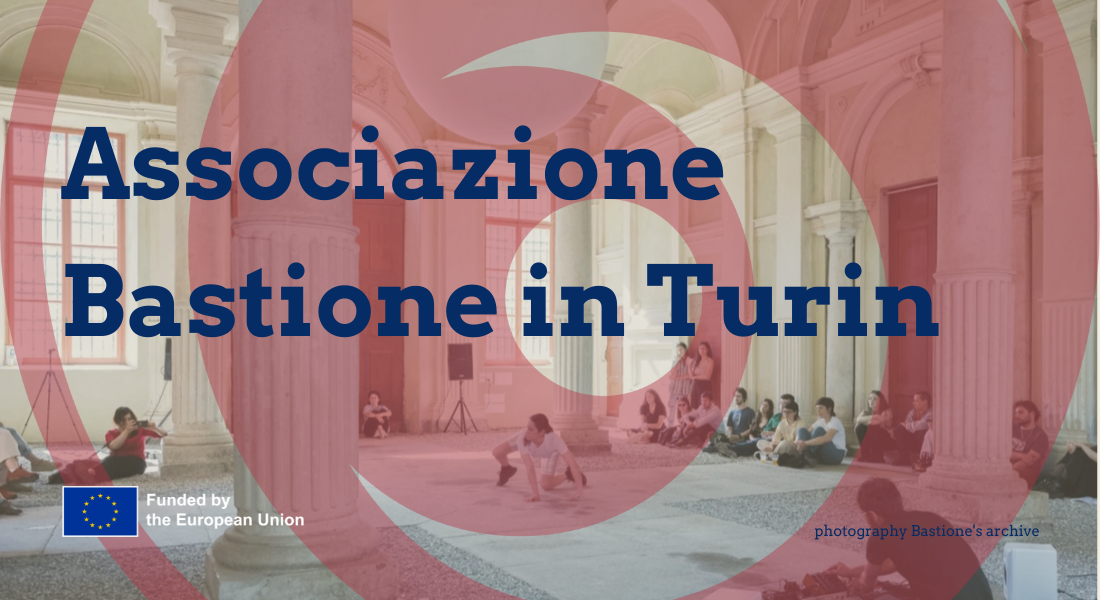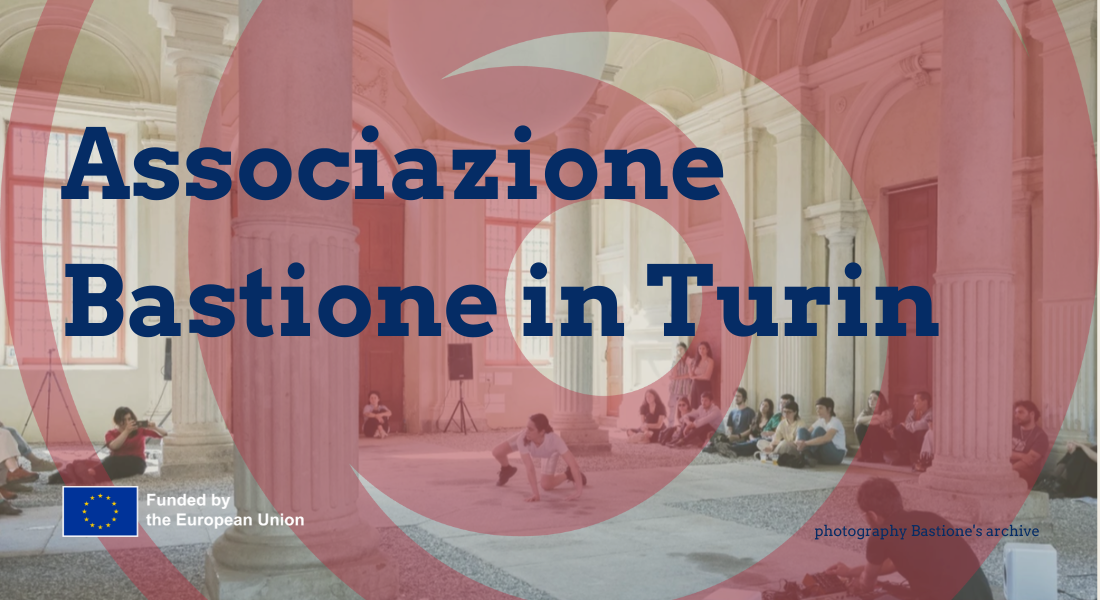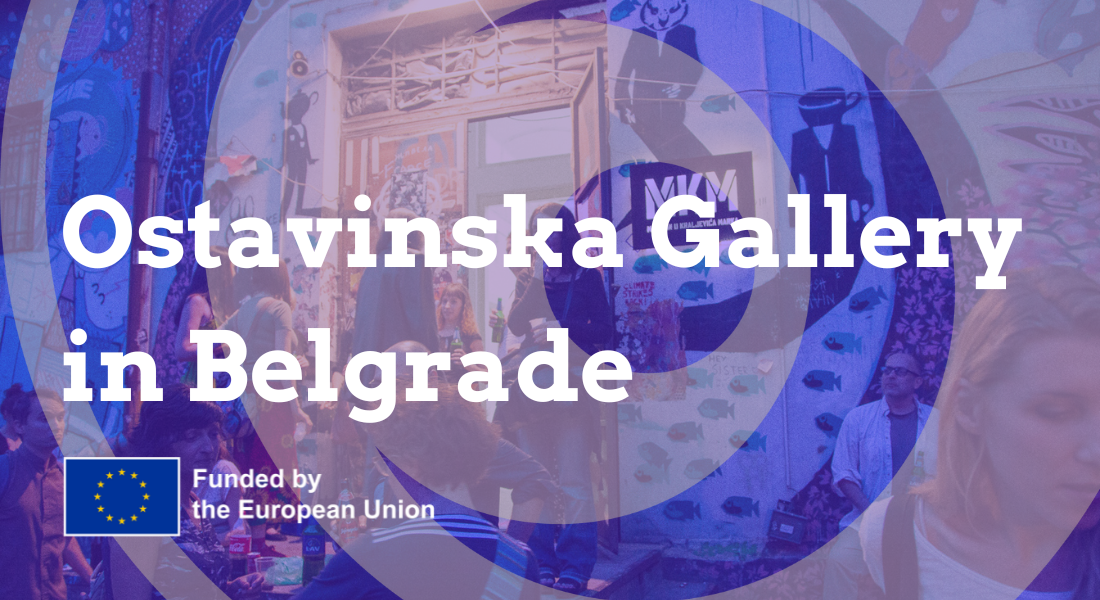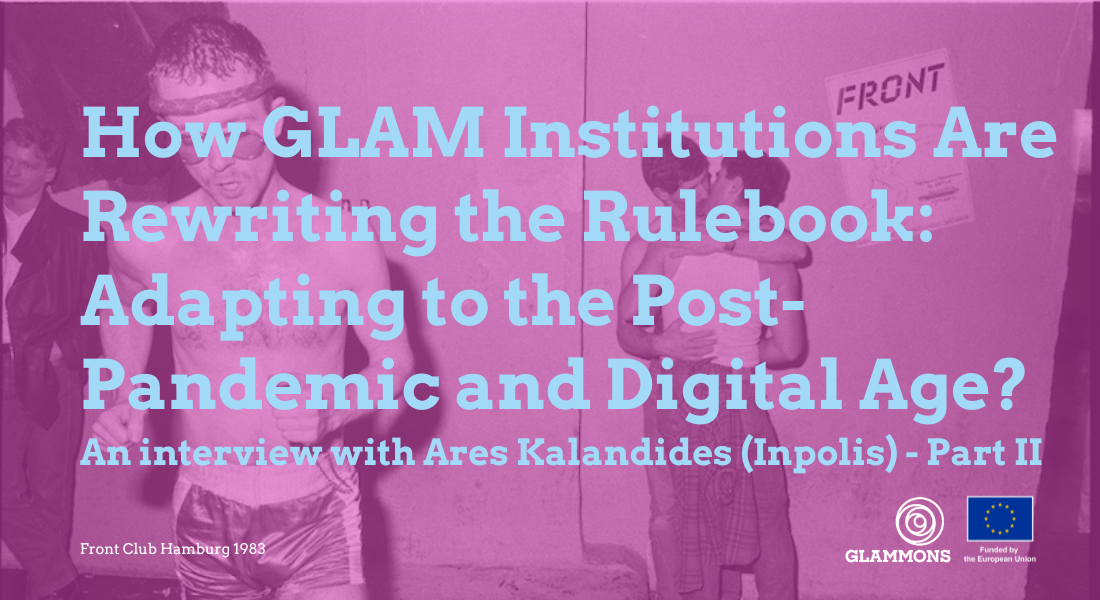Call for contributions
Conference: Commons and commoning in/for cultural production
4-5 September 2025, Romantso, Athens, Greece
The conference marks the end of the GLAMMONS project, which aimed to explore practices (concerning management, financial sustainability and participation) that have emerged around small-scale, community-led GLAMS (Galleries, Libraries, Archives and Museums) through the theoretical lens of the commons. The project aimed to inspire commoning practices around GLAMs and beyond, and bring to the fore best practices that can respond to challenges that commons-oriented cultural organisations face.
We welcome contributions that build on empirical and/or theoretical approaches and we are particularly interested in critical contributions about the development of commons in cultural organisations from different academic perspectives, such as cultural studies, cultural economics, urban and cultural geography, sociology, management studies, labour studies, political sciences etc. We also welcome contributions from practitioners that would like to showcase their commons-oriented cultural organisations and discuss their challenges and practices.
The conference will be organised around six thematic panels, where each participant will have around 15 minutes to present their work.
After the conference, all contributors will be invited to submit their paper for publication to an edited book on commons and commoning in/for cultural production.
Keynote Speakers
Alice Borchi, University of Leeds
Ana Margarida Esteves, Center for International Studies of the University Institute of Lisbon
Andreas Exner, University of Graz
Amanda Huron, University of the District of Columbia
Alexandros Kioupkiolis, Aristotle University of Thessaloniki
Prodromos Tsiavos, Onassis Foundation
Abstracts can focus on one or more of the following thematic panels:
- Management and participatory practices under commons
- Participation and co-curation in museums and cultural institutions: challenges and good practices
- The past as a commons resource: Community narratives, traditional knowledge and heritage-making
- Effective tools and mechanisms for horizontal decision-making in GLAMs and other cultural organisations
- Networks and Intercommoning
- In what kind of networks commons-oriented organisations participate and draw resources?
- How can relations and networks with other commons (housing, energy, agrofood) assist and further stabilize commons-oriented GLAMs and commons from other fields of cultural production?
- How do Diverse and Community Economies enable commoning in cultural production?
- Commons-enabling infrastructures: Relationalised finance, volunteer labour and other resources
- What resources (financial and other) are needed for enabling and sustaining commoning in the field of culture?
- What are the social, financial, political or legal barriers, resistances and opportunities for supporting commoning in the field of culture?
- What financial practices support commoning without the predatory extraction of conventional finance or the bureaucratic procedures that come with state support?
- What are the challenges of communal volunteer labour in commons-oriented cultural organisations and initiatives?
- Values and co-creation practices in/for commoning
- What values inform different practices of cultural commons?
- How can cultural commons build collective sense of purpose?
- How to assess the importance of different clusters (cultural, social, societal) of values?
- Digital commons and cultural accessibility
- Repositories and their functions for culture and GLAMs
- What are the digital tools for increasing access and engagement in cultural heritage and GLAM collections?
- How can digital commons inform sectorial practices of heritage and culture institutions?
- Policies for enabling commoning practices in cultural production
- What is the role of the state (in various spatial scales) in enabling and sustaining commons-oriented cultural production?
- What good practices/policies exist for mobilising and sustaining commoning processes?
- Public and private sector synergies? Terms and conditions for serving public benefit
Important dates and guidelines
- Deadline for abstracts submission: 30 June 2025 (please indicate the thematic panel you would like to contribute to)
- Send your abstracts at glammons.pmo@gmail.com
- Notification of accepted abstracts: 15 July 2025
- Length of abstracts: Maximum 300 words. All titles and abstracts must be written in English.
- The conference has no fee.
Free accommodation for early career researchers
We aim to offer 12 bursaries to cover accommodation and lunches (3-6 September 2025) for early career researchers (post-doctoral researchers, PhD candidates, etc.) to join the conference and present their contribution. In order to be considered for free accommodation, please send us your CV along with the abstract by the 30th of June 2025.

